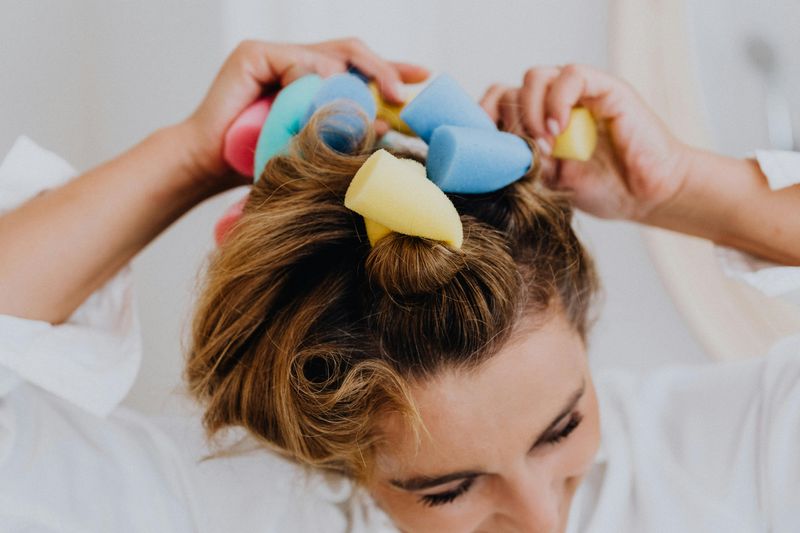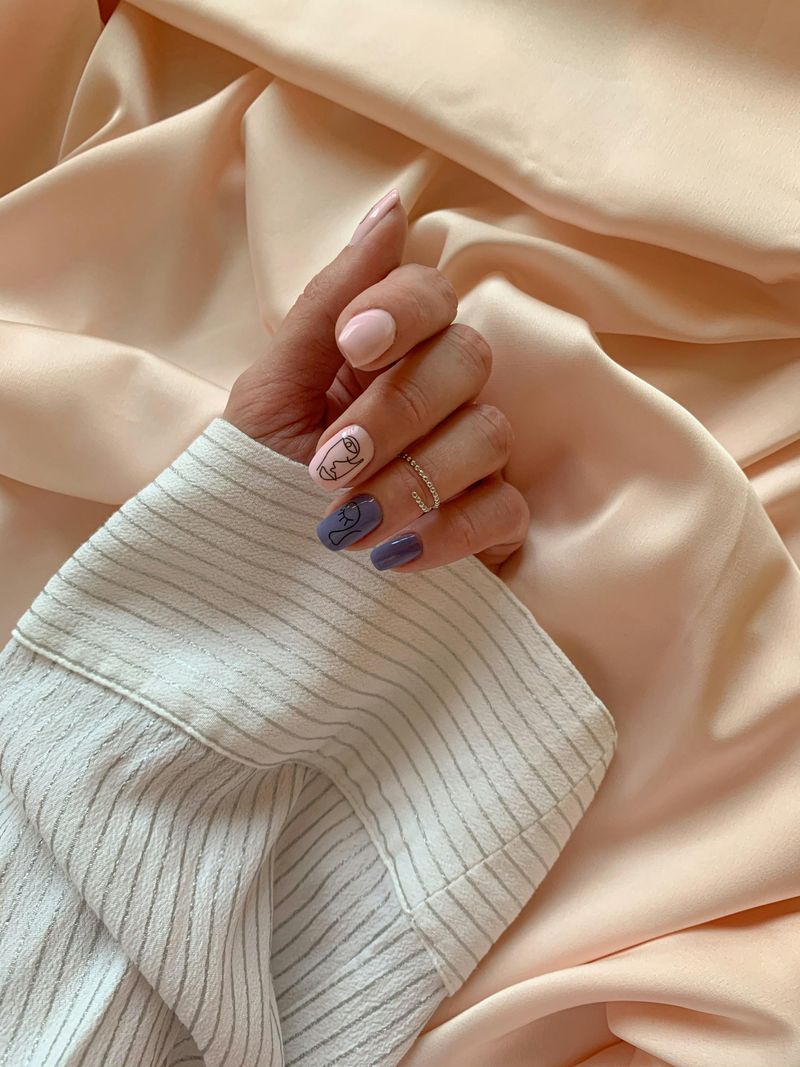13 Things Women Often Worry About—But Men Rarely Notice

We all have moments of self-doubt, but women often carry specific worries that men simply don’t register. From tiny physical details to social behaviors, the gap between what women stress over and what men actually notice can be surprisingly wide. Understanding this difference might just free you from unnecessary anxiety about things that truly don’t matter to others.
1. Small Weight Fluctuations

Those few pounds gained over the weekend might feel like a personal crisis, but most men couldn’t spot the difference with a magnifying glass. Women often track their weight daily, noticing every minor shift on the scale.
Meanwhile, guys typically notice only significant changes—if they notice at all. They’re more likely to respond to your overall energy and confidence than whether your jeans feel slightly tighter today.
The mental energy spent worrying about these small fluctuations rarely matches how much others actually perceive them. Your body naturally changes throughout the month anyway, making those daily weigh-ins more about your relationship with yourself than anyone else’s perception.
2. Bad Hair Days

Ever canceled plans because your hair wouldn’t cooperate? You’re not alone. Women often feel their entire appearance is ruined when their hair doesn’t behave, spending extra time with styling tools trying to fix what feels like a disaster.
Men, however, rarely pick up on the subtle differences between your ‘good’ and ‘bad’ hair days. That cowlick that’s driving you crazy or those bangs that won’t lie flat simply don’t register in their observation.
The truth is, most people are too focused on their own appearance to notice your hair concerns. What feels like a spotlight on your head is actually just a tiny detail in how others see you—if they notice at all.
3. Tiny Skin Imperfections

That pimple on your chin might feel like it has its own zip code, but chances are, men aren’t even spotting it. Women often stand inches from the mirror, analyzing every pore and blemish with critical precision.
The reality? Most men see your face as a whole picture, not a collection of flaws to inspect. They’re taking in your smile, your expressions, and your overall appearance—not mentally cataloging that tiny spot near your nose.
Remember that most skin concerns appear magnified to us because we know exactly where to look. The next time you feel self-conscious about a blemish, remind yourself that it’s probably invisible to anyone standing at a normal conversational distance.
4. Outfit Repetition

“Didn’t she wear that last week?” — said almost no man ever. While women often worry about repeating outfits too frequently, especially on social media, men rarely keep a mental inventory of your wardrobe choices.
The pressure to constantly appear in fresh ensembles comes more from women’s own expectations or other women’s notice. Most guys might recognize your “favorite dress” but wouldn’t bat an eye at seeing it twice in the same month.
Fashion bloggers and celebrities have actually started embracing outfit repeating as sustainable and realistic. Next time you hesitate to wear something you love because “everyone’s seen it,” remember that half the population probably didn’t register it the first time—and wouldn’t mind seeing it again.
5. Visible Stretch Marks or Cellulite

Many women go to extraordinary lengths to hide perfectly natural skin features like stretch marks and cellulite. They’ll skip the pool party or wear extra layers even in summer heat, all to conceal what they consider glaring flaws.
Here’s the surprising truth: most men don’t even register these skin textures as problems. While women have been conditioned by airbrushed media to see these marks as defects, men typically view them as simply part of a woman’s body—if they notice them at all.
Studies actually show that men rate women’s attractiveness based on overall impression, not these specific details. The anxiety about these natural skin features causes far more distress than any actual judgment from others, especially from men.
6. Nail Chips or Grown-Out Manicures

Fresh from the salon, your nails look perfect. Two days later, that tiny chip feels like a neon sign announcing your failure to maintain perfection. Women often hide their hands or apologize for less-than-perfect manicures that men wouldn’t notice with a magnifying glass.
The nail industry thrives on this hyperawareness, but most guys can’t tell the difference between gel, dip powder, or regular polish—let alone spot when your cuticles need attention. They might notice the color if it’s bright, but the tiny details that drive you back to the salon every two weeks? Those fly completely under the radar.
Some women even schedule important meetings around their nail appointments! Consider how much time and money you might save by relaxing your personal nail standards just a bit.
7. Body Hair Concerns

Missed a spot shaving? Forgot to wax? Many women experience genuine panic over slightly stubbly legs or underarms. The razor industry has successfully convinced women that any visible body hair is a social emergency.
Men, meanwhile, often don’t register these minor details at all. Having grown up with their own body hair, they don’t typically scan for or judge these natural features on women. The stubble that feels like sandpaper to you is usually completely unnoticed by male companions.
This doesn’t mean you should change your personal grooming preferences—do what makes you comfortable. But knowing that forgetting to shave isn’t the social catastrophe marketing has made it out to be might save you unnecessary stress when you’re running late or simply don’t feel like bothering.
8. Overanalyzing Text Responses

“He used a period instead of an exclamation point—is he mad at me?” Women often decode text messages like cryptographers, analyzing everything from punctuation to response time for hidden meanings.
Meanwhile, most men are typing whatever comes to mind, without considering how their message might be interpreted. That delayed response probably means he was busy, not that he’s losing interest. The shorter text likely means he’s distracted or multitasking, not emotionally withdrawing.
Research shows women typically use more emotional indicators in written communication than men do. Before spending hours dissecting his “k” response with friends, remember that men generally take texts at face value. They’re usually not embedding secret codes or passive-aggressive hints in their messages—what you see is typically what you get.
9. Voice or Laugh Quirks

That laugh you’ve been self-conscious about since middle school? The slight pitch change when you’re excited? These vocal quirks that women often try to suppress are rarely perceived negatively by men.
Women tend to monitor their voices carefully, worrying about sounding too high-pitched, too loud, or too different from what they consider “normal.” Many even practice laughing differently or speaking in a lower register to avoid judgment.
The good news is that authentic vocal expressions are actually more appealing to others. Men typically find natural enthusiasm and genuine laughter attractive, regardless of pitch or volume. Your distinctive laugh is more likely to be remembered fondly as part of what makes you uniquely you, rather than as something to criticize.
10. Makeup Details

The difference between winged and straight eyeliner might be obvious to you, but for most men, makeup exists in just two categories: wearing some or wearing none. Women often spend considerable time blending eyeshadows perfectly or finding the exact right shade of foundation.
Men generally notice the overall effect rather than the specific techniques. They might register “she looks nice today” without identifying that it’s because your contour is particularly well-blended or your lipstick perfectly complements your outfit.
This doesn’t mean your makeup skills aren’t impressive—they absolutely are! But when you’re running late and debating whether to redo your eyeliner for the third time, remember that subtle differences in application are primarily visible to other makeup enthusiasts, not to the average man.
11. Fashion Trends

Are mom jeans in or out this season? Is that handbag still trendy? Women often worry about keeping up with rapidly changing fashion trends, fearing judgment for wearing something “so last season.”
Most men, however, have a much more straightforward approach to fashion evaluation. Rather than tracking trends, they notice if something fits well and suits your personal style. They’re far more likely to compliment an outfit that makes you look comfortable and confident than one that’s strictly on-trend but seems uncomfortable.
Fashion should ultimately be about self-expression and feeling good. The next time you hesitate to wear something you love because it’s not currently trending on social media, remember that most men—and many people generally—respond more to how you carry yourself than whether your accessories are this season’s must-haves.
12. Eating Habits

Ordering a salad when you really want pasta? Many women monitor their eating habits around others, especially men, fearing judgment about appetite or food choices. This self-consciousness can turn meals from pleasure to performance.
The reality is that most men aren’t keeping score of what you eat. They’re not mentally calculating calories or judging whether you should have that dessert. In fact, many men find it refreshing when women enjoy their food without apparent anxiety.
Food-related anxiety often stems from societal messages rather than actual judgment from others. Next time you’re out to eat, try ordering what you genuinely want rather than what you think makes the “right” impression. You might discover that nobody else at the table is paying nearly as much attention to your plate as you are.
13. Comparisons to Other Women

“She’s prettier/thinner/more successful than me.” Women often mentally compare themselves to every other woman in the room, creating invisible competitions that exhaust their confidence. This habit can drain the joy from social gatherings and relationships.
Men typically don’t engage in these constant comparisons. When attracted to someone, they focus on that person’s specific qualities rather than mentally ranking them against others. They’re not usually thinking about how you measure up to celebrities, your friends, or their exes during normal interactions.
The comparison habit is largely a conversation women have with themselves, not something imposed by male perception. Recognizing this difference can be incredibly freeing—the detailed mental scorecard you keep is likely something only you see, not something others are maintaining about you.

Comments
Loading…